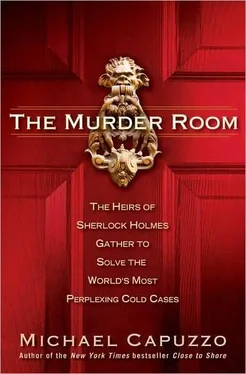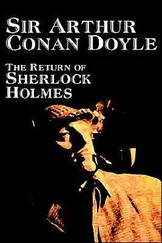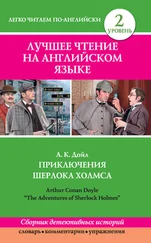So what trouble is left for a dick to get into, particularly a man in his sixties? The probability is, you can pretty well surmise if he made sexual advances to an adult you’d have a very different reaction, so therefore what about a child? The answer is the victim had abused a child.
Self, quickly now, did the victim abuse a girl or a boy?
If it were a girl the father would have seen it as a deflowering and felt it as a father, but as a man he would have felt he failed to protect his child. In that case I suspect the father might not have cut off his dick, but may have just stabbed him violently, perhaps cut out his heart. It would have been a more hostile action, with more anger, more emotion. My intuitive answer is the father identified with the son and was able to symbolize it, incorporate it, see it as part of himself, see the harm of it as the deviant exploitation of manliness. The commonality of manliness with his son allowed him to narrow his anger to a very cold, focused thing-to send the guy to his grave without a dick like a piece of shit.
A couple of minutes had passed when Walter spoke aloud: “I believe the victim was a pedophile rapist who was murdered by the father in vengeance for the crime he committed against his son. In a nasty little work of symbolism, the father cut off the pedophile’s dick. He bled to death.”
Shepherd slowly grinned and said, “That’s right.” The murder victim had forced a twelve-year-old boy to have oral sex, he explained. The killer was the boy’s father, who had avenged his son. In the audience, jaws went slack. The American was precisely right.
Now, in his hotel room, Walter allowed himself to reflect on the victory. I earned my respect.
He looked at the clock, after ten, not too late. With a groan, he picked up the phone number Fleisher had given him and dialed. My sense of duty is inviolable. It’s damn annoying at times.
Duty also told him now to let it ring five times, no more. On the third ring, Jim Dunn picked up.
Walter introduced himself. “I’m a psychologist, Mr. Dunn, whose basic expertise lies in profiling serial killers. From the little Bill Fleisher has told me, I suspect my skills might be of some use to you.”
The man on the other end of the telephone sounded stunned, then guarded-as if he hadn’t grasped the fact that his son had been murdered in cold blood.
CHAPTER 32. THINK THEREFORE ON REVENGE
At eight o’clock in the morning, Richard Walter and Jim Dunn sat in Walter’s room on the seventh floor of the Hershey Hotel, enveloped in brown gloom and cigarette smoke. Broad Street lay below in the bright spring sunshine of May 1992, but Walter had pulled the drapes to screen the bothersome light and noise. The profiler sat erect in a Queen Anne chair, a picture of stillness with his eyes closed. Dunn, a tall, silver-haired man with a craggy face and nervous blue eyes, faced him in a matching Queen Anne. On the table between them, Dunn had piled the notebooks, tapes, and newspaper clippings that chronicled his son’s murder. There was a pot of room service coffee, two cups, and an ashtray with a Kool sending a lazy plume to the gathering cloud on the ceiling.
Walter opened his eyes and arched his brow. “It sounds like you’re hurting, Jim,” he said. “How may I help you? Tell me what you have. Tell me about the case.”
Walter had spotted Dunn in the lobby at twenty paces. The deduction was instantaneous. The man’s elegant suit, shiny wing-tips, and silver hair bespoke the mature, prosperous gentleman of the telephone call the night before. The craggy, Scots-Irish face was open and bright-eyed in a manner unusual in the Eastern cities, more likely in a self-made man of southern mountains or western prairie. The suit and tie were too elegant by half, clearly the best suit and tie the man owned-the armor of a man girded for battle and feeling overwhelmed. Yet it was the eyes that neatly summed up the rest of the fellow and indicated it could be none other than Jim Dunn. “I have seen often in the parents of murdered children the eyes of a medical dog sniffing for cancer patients,” Walter said. “He had expectant and engaging eyes that held the lightly masked sadness of loss. There is an ethereal sadness that underpins such a man,” he said. “A sadness of the universal concept, not just feeling sad but a condition in which loneliness, mystery, and all the major universals seep into the bones. They often smile and whatever else but they rarely if ever belly laugh.” He’d seen parents destroyed by that burden. Walter took special note that the man’s briefcase (overstuffed, overburdened, like the man himself) was brown rather than black. The more pliant color was a hopeful sign, suggesting emotional vulnerability and capability of wisdom and growth (rather than unyielding rigidity). Flexibility would be the most important trait of all if it was genuine, the undoing of the whole affair if it disguised weakness.
Walter had suggested they “go up to the room for a cup of coffee, a smoke, and a little chitchat.” As Walter studied Dunn’s gaunt face and hollow eyes in the yellow lamplight, he recalled his misgivings of the night before. A man weakened by grief and self-pity could not bring his son’s murderer to account. Walter smiled to himself as Henry VI came back to him: “Oft have I heard that grief softens the mind, And makes it fearful and degenerate; Think therefore on revenge and cease to weep.”
A man’s grief could not be denied but it must be “set apart. The pain had to come out first.” Walter tented his fingers beneath his gaunt face. As Dunn spoke, Walter’s small blue eyes varied from steely interest to the softness of utmost patience. The angel of vengeance took many forms; in such a conference, it began with Walter as the ferryman poling parents of murdered children through blood tides of woe.
Dunn had been working late on that Sunday evening in his Bucks County, Pennsylvania, home office when the phone rang. He thought, It must be Scott. The Sunday calls from his twenty-four-year-old son, who had moved to Lubbock, Texas, to make a new life for himself, were a father’s joy. Dunn had urged the move; Lubbock was his beloved childhood home, a friendlier, more wholesome place than the East Coast, a place for Scott to start over. Scott had struggled in school in the East. He tried the U.S. Air Force, then tried community college in Texas and dropped out, but after that things started to come together for him. He had a good job, a job he loved and excelled at. Scott had always shown a mechanical gift. Even as a boy he could take apart anything and put it back together. Now in Lubbock, he got a job in an electronics store installing stereos-and became a star at it. He was a West Texas stereo cowboy. The region had rodeo-style competitions in which the “cowboys” vied for prizes, money, and prestige for the fastest installations and highest quality sound. Scott dominated the competitions. He’d found a way to maintain sound quality at unheard-of volumes by stacking ice on the system. His trophies filled the store. An athletic six foot two, 195 pounds with blond good looks, “The Iceman” also starred in the store’s TV commercials. Women came into the shop to meet him. He’d loaded his own car-an ’87 Camaro he called “Yellow Thunder”-with the finest stereo equipment, and took it booming down the prairie highways. He’d recently told his father he was bringing home for Thanksgiving a young woman named Jessica, a bright, lovely Mississippi State University student-his soon-to-be fiancée.
But the flat, cold voice on the line was someone he’d never heard of.
Her name was Leisha Hamilton.
“Are you Scott Dunn’s father?” she asked.
She was Scott’s live-in girlfriend, she said. She’d found Dunn’s name on a telephone bill. Scott had been missing for four days and she was concerned.
Читать дальше












